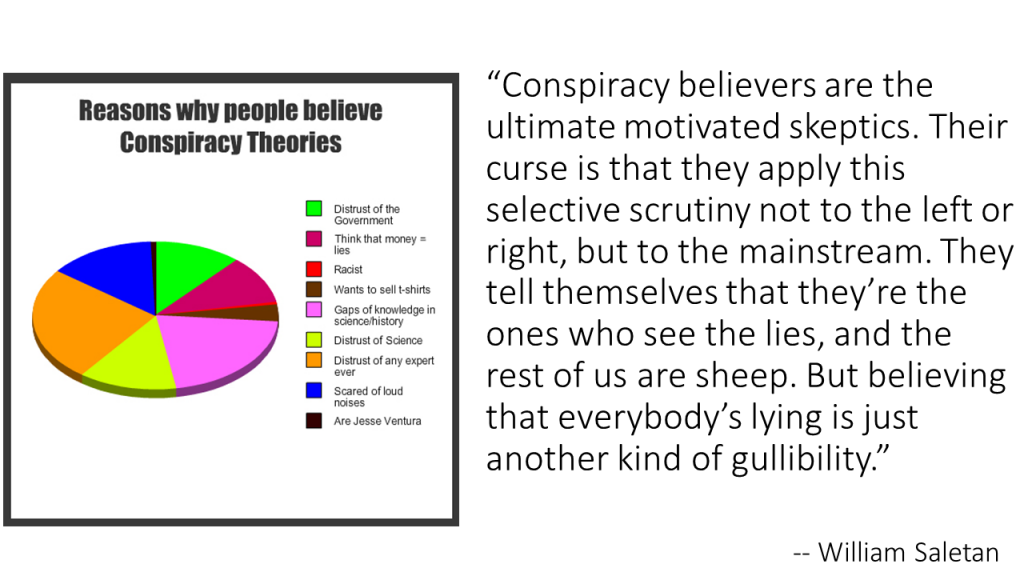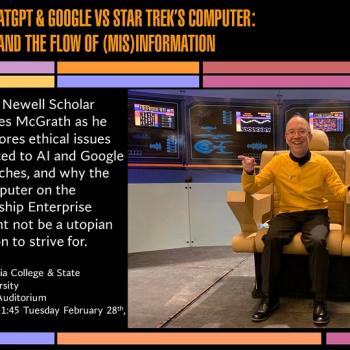Commenter Bilbo raised an excellent question about what distinguishes a conspiracy from a conspiracy theory. There have been real life conspiracies, and people conspire together for all sorts of reasons on a daily basis. How do we distinguish this mundane phenomenon from the kind of conspiracy theory that is deservedly treated with disdain?
Clearly there is a tipping point, beyond which the extent of the conspiracy, or the kind of information being covered up, becomes implausible. And towards the extremes, categorizing talk of conspiracies as “plausible” or “crackpot” may be relatively easy. But are there any instances which are near the middle of the spectrum, and less easy to categorize?
And clearly (as the meme below emphasizes) the kooky conspiracy theory is typified by hyperskepticism towards mainstream media reporting, government, history, science, etc., but fails to apply even more moderate skepticism towards their own conspiracy hypothesis.
Conspiracy theories of the crackpot kind also posit that information is readily available to everyone, but only they and a handful of others have the wisdom/genius/insight/skepticism/freethought/discernment to spot the pattern in what we all know and thus recognize what is going on behind the scenes.
What are other characteristics that distinguish tinfoil hat kinds of conspiracies from actual conspiracies? What are readers’ thoughts about this topic?
















